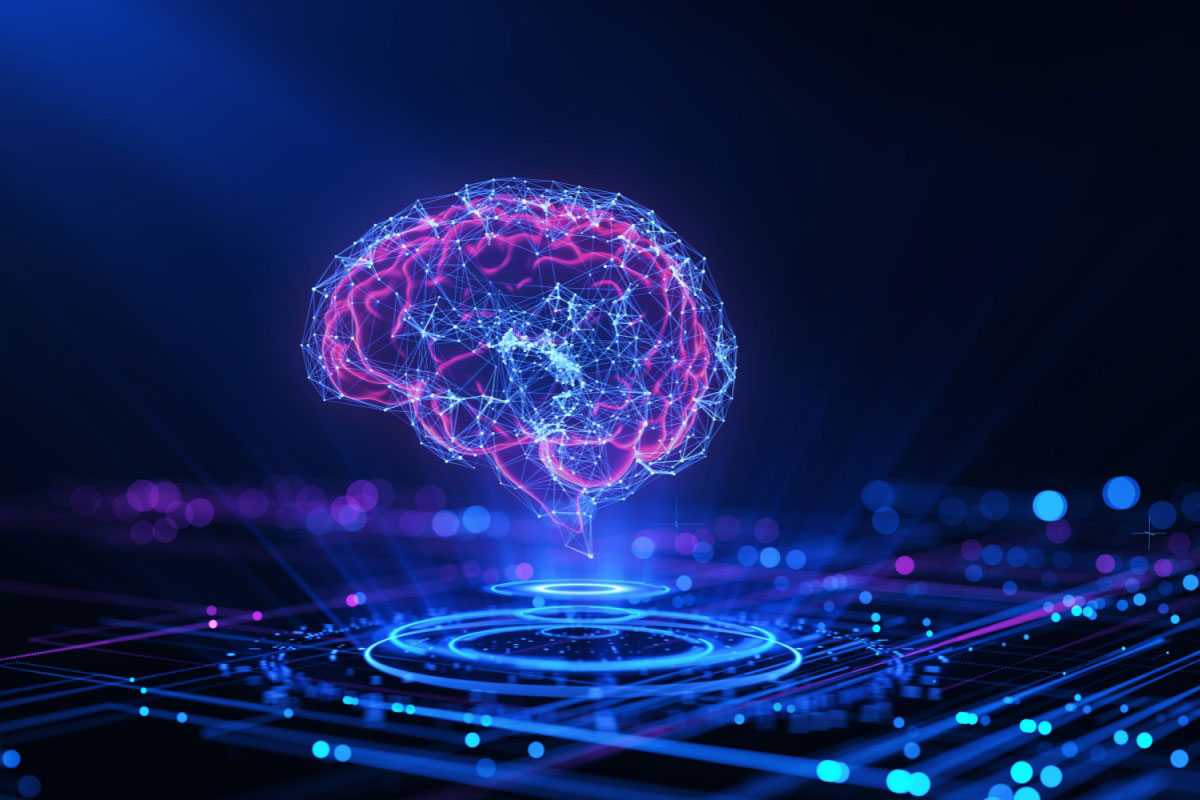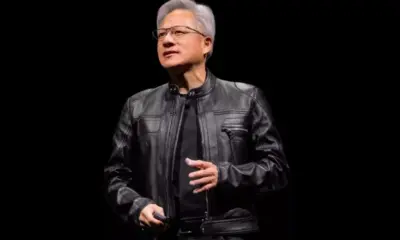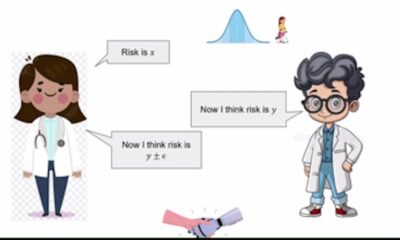Science
Is AI Leading Us to a Dangerous Intellectual Mediocrity?

The rapid integration of artificial intelligence (AI) into daily life may be fostering a troubling phenomenon described as the “Middle-Intelligence Trap.” According to Zhigang Feng, Ph.D., an associate professor of economics at the University of Nebraska at Omaha (UNO), this trend threatens to diminish our cognitive abilities rather than enhance them. In his forthcoming paper, Feng argues that as we increasingly rely on AI for basic tasks, we risk becoming intellectually stagnant, caught between the extremes of utopian dreams and dystopian fears.
The conversation surrounding AI often oscillates between two polarities: the optimistic vision of technology as a benevolent force and the darker narrative of rogue machines overtaking human decision-making. While these discussions are compelling, Feng points out that the more immediate threat lies in our complacency—an unintentional surrender of our critical thinking skills. He describes this phenomenon as akin to the economic “middle-income trap,” where countries stagnate after reaching a certain level of growth without advancing further.
As we delegate basic cognitive tasks to machines, we may mistakenly equate their efficiency with our own intellectual progress. The danger is not just in becoming overly dependent on AI but in failing to utilize the mental space that technology frees up to enhance our reasoning and creativity. Instead, we risk becoming what Feng terms “cognitive rentiers,” relying on machines while our own mental faculties deteriorate.
Gradual Erosion of Cognitive Skills
The decline in our cognitive engagement has not occurred overnight; it has been a gradual process over several decades. The introduction of pocket calculators in the 1970s began to diminish our mental arithmetic skills. Similarly, the advent of word processors allowed for quicker writing but may have hampered the deep conceptual connections fostered by traditional writing methods.
With the rise of search engines, our relationship with memory has shifted significantly. We have become adept at locating information but less capable of retaining and understanding it. Today, generative AI models like ChatGPT take this trend further by not only retrieving facts but also synthesizing arguments and generating written content. The very act of thinking is increasingly outsourced to algorithms.
This reliance creates a feedback loop. As we seek quick answers from AI, its responses become tailored to our preferences, reinforcing existing biases. The result is a proliferation of homogeneous ideas that lack originality, ultimately fostering intellectual stagnation. A study from MIT revealed that individuals utilizing large language models for writing exhibited weaker neural connectivity, resulting in essays that were less memorable and original.
Breaking Free from the Trap
Feng emphasizes that escaping the Middle-Intelligence Trap requires deliberate action. He suggests three strategies that can help maintain and enhance our cognitive abilities:
1. **Build Cognitive Reserves**: Just as banks maintain capital reserves, individuals should preserve their mental skills. Engaging in mental arithmetic, writing drafts without assistance, and summarizing books from memory can strengthen cognitive capacity.
2. **Demand Strategic Friction**: In our pursuit of efficiency, we often overlook the value of struggle in the learning process. Systems that introduce challenges can foster deeper engagement and critical thought. The struggle to articulate thoughts or find the right word is not a flaw but a feature that enhances our mental resilience.
3. **Redefine Success**: We should evaluate tools based on their ability to enhance our intelligence, not just their capacity to increase speed. Understanding the logic behind AI recommendations and ensuring our creative outputs are genuinely novel are essential criteria for measuring success.
The Middle-Intelligence Trap is a choice shaped by a multitude of daily decisions, rather than an inevitable fate. The risks lie not in dramatic failures but in a subtle decline that could render us intellectually passive. As we navigate this landscape, it is crucial to remember the value of human thought—its beauty, messiness, and potential for innovation.
The path forward calls for a conscious effort to preserve our cognitive capabilities and engage meaningfully with the tools designed to augment our intelligence. For now, the choice remains in our hands, and the implications of that choice will shape the future of both human and artificial intelligence.
-

 Technology4 months ago
Technology4 months agoDiscover the Top 10 Calorie Counting Apps of 2025
-

 Health2 months ago
Health2 months agoBella Hadid Shares Health Update After Treatment for Lyme Disease
-

 Health3 months ago
Health3 months agoErin Bates Shares Recovery Update Following Sepsis Complications
-

 Technology3 weeks ago
Technology3 weeks agoDiscover 2025’s Top GPUs for Exceptional 4K Gaming Performance
-

 Technology4 months ago
Technology4 months agoDiscover How to Reverse Image Search Using ChatGPT Effortlessly
-

 Technology2 months ago
Technology2 months agoElectric Moto Influencer Surronster Arrested in Tijuana
-

 Technology4 months ago
Technology4 months agoMeta Initiates $60B AI Data Center Expansion, Starting in Ohio
-

 Technology4 months ago
Technology4 months agoRecovering a Suspended TikTok Account: A Step-by-Step Guide
-

 Health4 months ago
Health4 months agoTested: Rab Firewall Mountain Jacket Survives Harsh Conditions
-

 Lifestyle4 months ago
Lifestyle4 months agoBelton Family Reunites After Daughter Survives Hill Country Floods
-

 Technology3 months ago
Technology3 months agoUncovering the Top Five Most Challenging Motorcycles to Ride
-

 Technology4 weeks ago
Technology4 weeks agoDiscover the Best Wireless Earbuds for Every Lifestyle





















